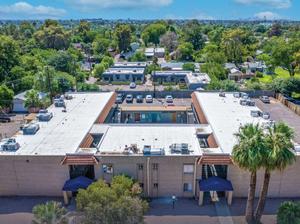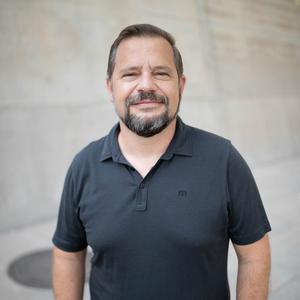
Arizona State University has launched a quantum technology research collaborative designed to unite research efforts and to help prepare a trained workforce in the industry.
Funded by the Arizona Board of Regents through an addition to the state’s Technology Research Initiative Fund, the Quantum Collaborative is a globally oriented initiative to help the state of Arizona compete and forge partnerships to advance this emerging field of physics and engineering.
“A key objective for ASU’s Knowledge Enterprise is to fundamentally change how the world solves problems,” Sally Morton, executive vice president of the ASU Knowledge Enterprise, said in a statement. “Quantum technology holds a unique promise to accomplish this, and I am thrilled to see what we can accomplish with our partners in the Quantum Collaborative.”
The collaborative is made up of companies, academic institutions, startups and initiatives cooperating across several areas to deliver advances across the emerging quantum technology landscape, as well as develop training and education for the future quantum workforce, ASU stated in a Nov. 1 announcement.
Widespread need for workforce development
With the largest engineering school in the nation, ASU is mobilizing resources to address a widespread need for quantum workforce development across many skill areas such as engineering, chemistry, materials science, human performance, communications and manufacturing, the university said.
One area specifically that is already “transforming society,” according to ASU, is quantum computing, a rapidly emerging technology between computing and quantum theory — a branch of physics that focuses on the behavior of atoms and the subatomic particles within them — that harnesses laws of quantum mechanics to solve more complex problems than traditional computing.
Founding industry and higher education partners include:
- Quantinuum, a combination of Honeywell Quantum Solutions and Cambridge Quantum, is an integrated quantum computing company that has released next-generation quantum products, including trapped-ion quantum computers, quantum computing enhanced cybersecurity and quantum computational chemistry software.
- Google Quantum AI will guide the curriculum and workforce development of the ASU Quantum Collaborative through hands-on resources such as its open-source quantum programming framework called Cirq and the Quantum Virtual Machine.
- SandboxAQ is developing business applications that combine the power of AI and quantum technology — dubbed AQ.
- CR8DL, an artificial intelligence and cloud computing company, is interested in quantum simulator optimization and quantum combined with high-performance computing.
- Purdue University, with its Rosen Center for Advanced Computing and the Purdue Quantum Science and Engineering Institute, pairs high-performance computing with quantum expertise and broad regional integration.
- Tecnológico de Monterrey, a private university in Mexico, brings broad STEM expertise and machine learning prowess.
- The University of Texas at San Antonio will bring its experience in cybersecurity and its AI and data science expertise to deal with the challenges that quantum presents to protect data and infrastructure. This includes its broad network of partners in their School of Data Science and university research institutes focused on AI and cloud/edge computing.
- Virginia Tech will bring expertise in quantum information science, producing research in key areas including quantum computing, simulation, networking, and cryptography and pioneering educational programs, facilitated by its Center for Quantum Information Science and Engineering.
ASU will also operate as a hub within the IBM Quantum Network, a global community of Fortune 500 companies, academic institutions, startups and national labs with cloud access to IBM’s premium quantum computers, experts and resources, the university said. Organizations can join ASU’s Hub as members to draw on IBM’s quantum technology and resources to advance quantum computing research.
Quantum Collaborative recently joined the Quantum Economic Development Consortium, or QED-C, and is developing relationships with prospective international partners, ASU said.










